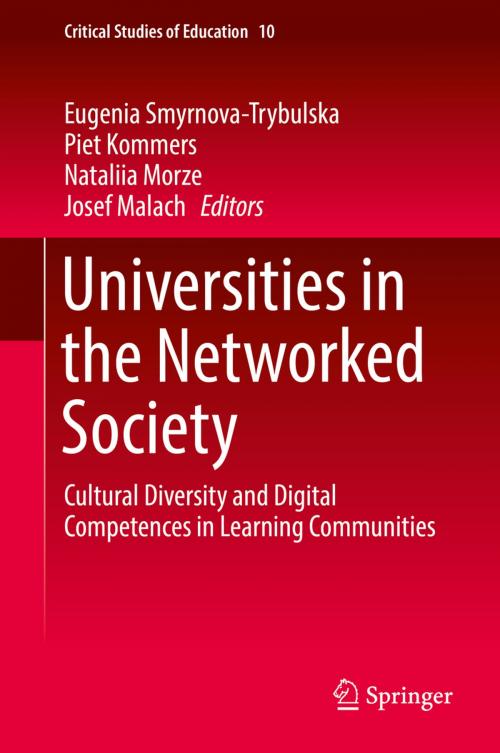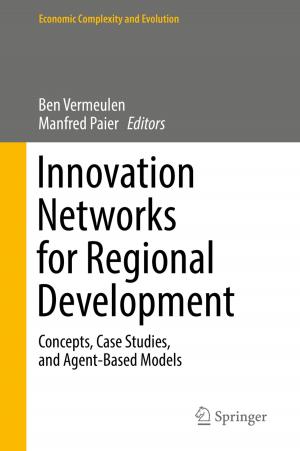Universities in the Networked Society
Cultural Diversity and Digital Competences in Learning Communities
Nonfiction, Reference & Language, Education & Teaching, Teaching, Computers & Technology, Educational Theory, Educational Psychology| Author: | ISBN: | 9783030050269 | |
| Publisher: | Springer International Publishing | Publication: | May 21, 2019 |
| Imprint: | Springer | Language: | English |
| Author: | |
| ISBN: | 9783030050269 |
| Publisher: | Springer International Publishing |
| Publication: | May 21, 2019 |
| Imprint: | Springer |
| Language: | English |
This book presents research on the effects and effectiveness of ICT applications in lifelong learning in relation to digital competences of educators. It sketches recent and future evolutions in higher education, explores whether universities have adjusted policies and business models in line with the rapid development of ICT technologies, and analyses whether the adjustments made are merely cosmetic or truly future-proof. The book specifically deals with such topics as digital competencies of teaching staff, the development and implementation of MOOCs and other E-learning tools, virtual classrooms, online tutoring, and collaborative learning. It presents case studies of innovative master’s programmes, projects and methods, and processes of standardization and validation used in various countries as illustrations. The book explains the rapid transition of the knowledge society to the "society of global competence" and shows the necessity of an active implementation of innovative forms and effective methods of education, and above all, distance learning at all levels of education.
This book presents research on the effects and effectiveness of ICT applications in lifelong learning in relation to digital competences of educators. It sketches recent and future evolutions in higher education, explores whether universities have adjusted policies and business models in line with the rapid development of ICT technologies, and analyses whether the adjustments made are merely cosmetic or truly future-proof. The book specifically deals with such topics as digital competencies of teaching staff, the development and implementation of MOOCs and other E-learning tools, virtual classrooms, online tutoring, and collaborative learning. It presents case studies of innovative master’s programmes, projects and methods, and processes of standardization and validation used in various countries as illustrations. The book explains the rapid transition of the knowledge society to the "society of global competence" and shows the necessity of an active implementation of innovative forms and effective methods of education, and above all, distance learning at all levels of education.















